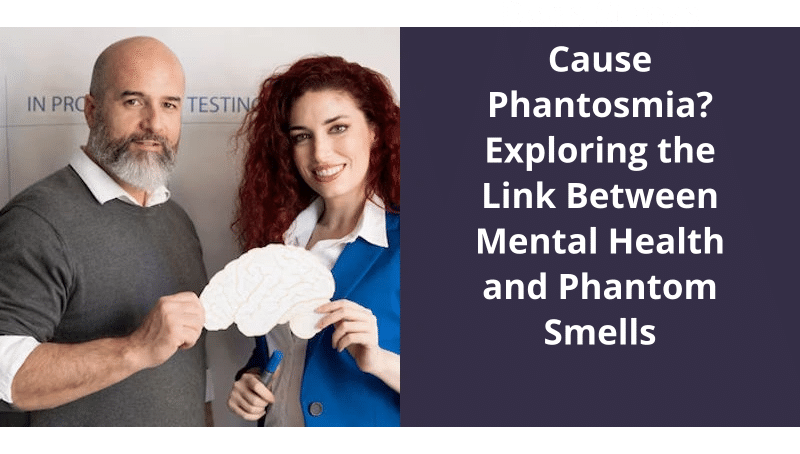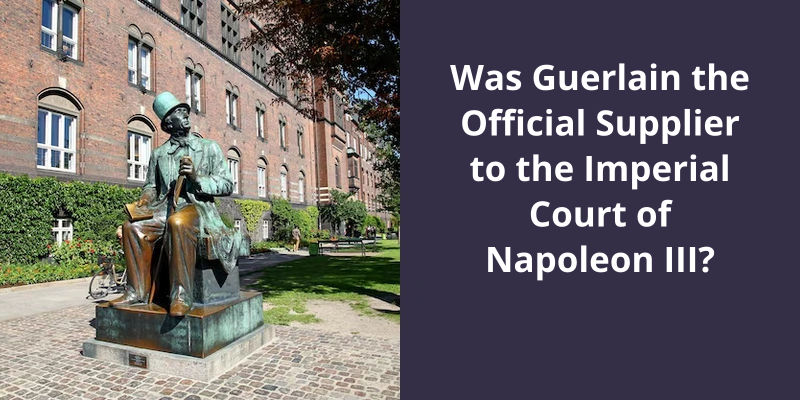Stress can potentially contribute to phantosmia, a condition where you perceive a smell that isn’t actually present. Mental health issues, including high-stress levels, anxiety, and depression, have been linked to this phenomenon. The reason is that these conditions can cause changes in perception, including smell, which might result in phantom smells. However, other factors like certain medications, exposure to toxic chemicals, or physical conditions like a sinus infection or a brain tumor can also cause phantosmia. So, while stress can be a potential trigger, it is not necessarily the only cause of this condition. It is also important to consult with a healthcare provider if experiencing phantom smells to identify the exact cause.

Can Phantosmia Be Serious?
Phantosmia is a term used to describe a condition where a person smells something that isnt actually there. While it may seem harmless, phantosmia can be a sign of a serious underlying health condition. A majority of cases of phantosmia are temporary and will go away on their own, but if it persists or becomes chronic, it should be investigated further by a medical professional.
One of the most common causes of phantosmia is a viral or bacterial infection. The condition can also occur after a head injury, brain surgery or radiation therapy. In some cases, the condition is caused by a malfunction in the olfactory system, which can be the result of exposure to environmental toxins, seizure disorders or a brain injury.
Your doctor can perform a thorough evaluation and rule out serious underlying health conditions. Treatment options may include medication, therapy or lifestyle changes.
If you’re experiencing recurring or persistent smells that aren’t present, it’s important to seek medical attention to rule out any serious conditions. Additionally, lifestyle changes such as quitting smoking or avoiding exposure to toxins can help alleviate symptoms.
What Are the Different Types of Phantosmia?
Phantosmia is a condition where a person perceives smells that aren’t actually present. There are different types of phantosmia, including parosmia, where smells are distorted or unpleasant, and cacosmia, where smells are perceived as foul or unpleasant. There’s also hyperosmia, where a person perceives smells more strongly than usual. These types of phantosmia can be caused by a variety of factors, including head injuries, nasal infections, and medication side effects.
Studies have shown that phantosmia, the perception of a smell without an actual odor present, is linked to damage in a specific area of the brain. The frontal lobe, responsible for the conscious perception of odors, has been identified as the primary cause of this sensory disorder. Let’s take a closer look at how phantosmia affects individuals and what treatments are available to manage this condition.
What Part of the Brain Causes Phantosmia?
Phantosmia, otherwise known as olfactory hallucination, is a rare condition that causes a person to experience smelling odors that aren’t present in their environment. Phantosmia can range from mild to severe, and can be a result of various factors such as neurological disorders, head injuries, and brain tumors. Researchers have identified that a specific part of the brain called the frontal lobe is responsible for the onset of phantosmia in many cases.
The frontal lobe is one of the most important regions of the brain, located behind the forehead, and responsible for various essential cognitive functions such as problem-solving, consciousness, and decision-making. The olfactory bulbs, which are responsible for our sense of smell, are connected to the frontal lobe. These connections can explain why neural damage or injury in the frontal lobe can cause phantosmia, as the faulty signals produced by the damaged area can cause the olfactory bulbs to misfire and create false odors.
The severity of these symptoms can vary depending on the extent and location of the damage. This highlights the importance of early detection and prompt medical attention for those experiencing olfactory hallucinations.
Clinicians and neurologists typically evaluate a patient’s medical history and conduct neurological tests to identify the root cause of the problem. MRIs and CT scans are typically used to identify any physical damage in the brain. In some cases, physicians might conduct a smell test as well, to rule out any other possible causes such as sinus problems or infection.
Common Causes of Phantosmia
Phantosmia is a condition where a person smells something that isn’t there. Some common causes include nasal infections, head injuries, and exposure to certain chemicals. Other factors such as medication side effects, neurological disorders, and mental health conditions may also play a role.
Source: Brain lesion-pattern analysis in patients with olfactory … – NCBI
If you experience phantosmia, which is the perception of smell without the presence of an odor, it’s important to seek medical attention. But who should you see? While your primary care physician may be able to offer initial guidance, an otolaryngologist (also known as an ear, nose, and throat doctor) may be better equipped to diagnose and treat the condition, as they specialize in issues related to the head and neck. They can identify and address any underlying problems, such as infections, tumors, or trauma, that may be causing the phantom smells.
What Kind of Doctor Should I See for Phantosmia?
Phantosmia is a medical condition characterized by a distorted sense of smell, in which the individual perceives smells that aren’t present. This condition can be caused by a number of underlying medical conditions, such as head trauma, sinus infections, and neurological disorders. If you’re concerned that you may be experiencing phantosmia, scheduling an appointment with an otolaryngologist is recommended.
Otolaryngologists specialize in treating medical conditions related to the ear, nose, and throat. They’re trained to diagnose the underlying causes of phantosmia by conducting thorough physical examinations and ordering diagnostic tests, such as CT scans and nasal endoscopies. Once a diagnosis has been made, otolaryngologists can recommend appropriate treatment options.
Depending on the underlying cause of your phantosmia, treatment may involve medication, surgery, or lifestyle changes. For example, if your phantosmia is caused by a sinus infection, your otolaryngologist may prescribe antibiotics or other medications to help clear the infection and reduce inflammation.
This may include prescribing medications to help reduce the intensity and frequency of the phantom smells or recommending environmental changes to reduce exposure to triggers. Counseling and other forms of therapy may also be recommended to help patients cope with the emotional and psychological impact of phantosmia.
With their specialized training and expertise, these doctors can help diagnose the underlying cause of your symptoms and develop a personalized treatment plan to improve your quality of life. Dont suffer in silence – reach out to a medical professional today.
What Are the Common Treatment Options for Phantosmia?
- Nasal drops and sprays
- Nasal saline irrigation
- Nasal corticosteroid sprays
- Nasal decongestants
- Antibiotics for bacterial infections
- Antihistamines for allergies
- Tricyclic antidepressants for nerve-related conditions
- Olfactory training exercises
- Surgery in rare cases
Conclusion
While some research suggests that anxiety may contribute to the development of this olfactory hallucination, other studies indicate that this phenomenon is most commonly linked to medication use. Ultimately, further investigation is needed to fully understand the underlying causes of phantosmia and it’s potential links with stress and anxiety. Nonetheless, it's worth noting that stress can impact our physical and mental health in a multitude of ways, and seeking professional help if you're struggling is always an important first step towards living a healthier life.





